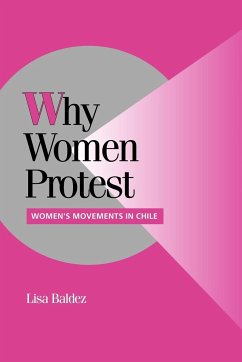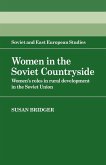Why do women protest? Under what conditions do women protest on the basis of their gender identity? Professor Baldez answers in terms of tipping, timing and framing. She relies on the concept of tipping to identify the point at which diverse organizations converge to form a women's movement. She argues that two conditions trigger this mobilization among women: partisan realignment, understood as the emergence of a new set of issues around which political elites define themselves, and women's decision to frame realignment in terms of widely held norms about gender difference. To illustrate these claims, she compares two very different women's movements in Chile: the mobilization of women against President Salvador Allende (1970-1973) and that against General Augusto Pinochet (1973-1990). Despite differences between these two movements, both emerged amidst a context of partisan realignment and framed their concerns in terms of women's exclusion from the political arena.
Table of contents:
1. Introduction; 2. Mothers of the cold war, daughters of the revolution: an historical overview of women in Chilean Politics; Part I. Women Against Allende: 3. The revolution hits home: women organize against Allende; 4. Catapulting men to action: the march of the empty pots; 5. Feminine power and the end of the socialist revolution; Part II. Women Against Pinochet: 6. Gendered networks and the emergence of civil society; 7. Women defend life: mass protests and the women's movement; 8. Democracy in the country and in the home: women for and against democratic transition; 9. Why women protest: comparative evidence.
This book compares two ideologically opposed examples of women's movements in Chile: the movement against the democratically-elected government of President Salvador Allende and that against the dictatorship of General Augusto Pinochet. This book explains the similarities between these movements.
This book compares two ideologically opposed examples of women's movements in Chile.
Hinweis: Dieser Artikel kann nur an eine deutsche Lieferadresse ausgeliefert werden.
Table of contents:
1. Introduction; 2. Mothers of the cold war, daughters of the revolution: an historical overview of women in Chilean Politics; Part I. Women Against Allende: 3. The revolution hits home: women organize against Allende; 4. Catapulting men to action: the march of the empty pots; 5. Feminine power and the end of the socialist revolution; Part II. Women Against Pinochet: 6. Gendered networks and the emergence of civil society; 7. Women defend life: mass protests and the women's movement; 8. Democracy in the country and in the home: women for and against democratic transition; 9. Why women protest: comparative evidence.
This book compares two ideologically opposed examples of women's movements in Chile: the movement against the democratically-elected government of President Salvador Allende and that against the dictatorship of General Augusto Pinochet. This book explains the similarities between these movements.
This book compares two ideologically opposed examples of women's movements in Chile.
Hinweis: Dieser Artikel kann nur an eine deutsche Lieferadresse ausgeliefert werden.









